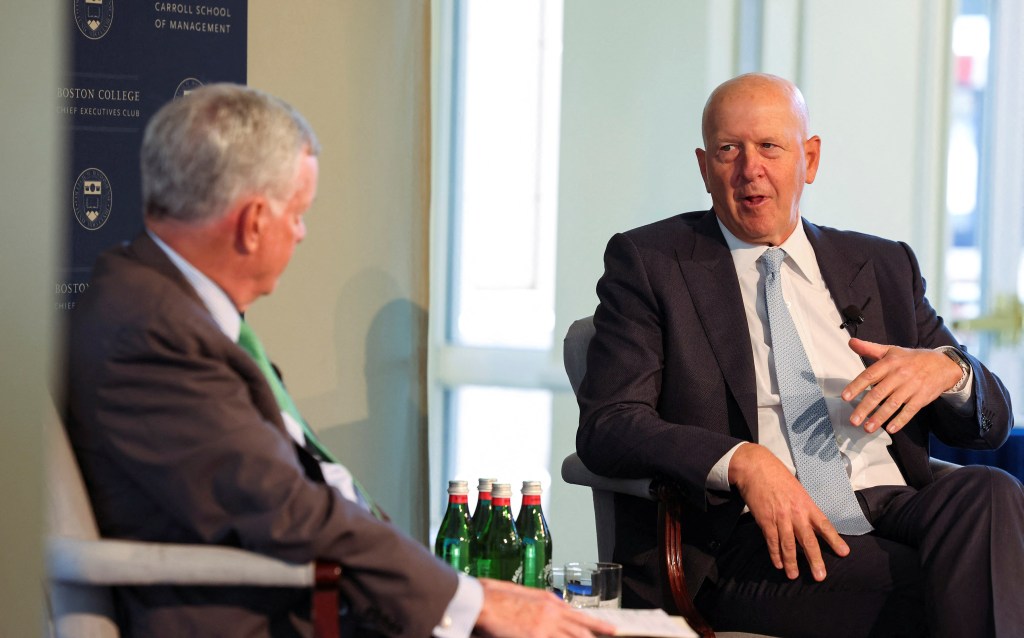Goldman’s David Solomon says Fed unlikely to cut rates this year: ‘We’re set up for stickier inflation’
Goldman Sachs CEO David Solomon said Wednesday he does not expect the Federal Reserve to cut interest rates this year.
“I’m still at zero cuts,” Solomon said at a Boston College event. “I think we’re set up for stickier inflation.”
His comments came after Federal Reserve policymakers said on Tuesday the central bank should wait several more months to ensure that inflation really is back on track to its 2% target before cutting interest rates.

Solomon’s comments stand in contrast to market expectations for at least one rate cut by the Fed this year.
Traders reduced bets on Wednesday for more than one rate cut this year, after the release of minutes of the Federal Reserve’s April 30-May 1 policy meeting showed rate-setters thought inflation could take longer to ease than previously thought.
Solomon told an audience of about 150 senior corporate executives and Boston College students that while he believes the US economy is fundamentally quite strong, not all Americans are experiencing growth or the impact of inflation the same way.
“Inflation is not just nominal, it’s cumulative,” Solomon said, citing a conversation he had recently with the CEO of a grocery chain who has seen customers cutting back on the size of purchases in response to rising prices.
“We’re starting to see the average American slowing down and changing his habits,” Solomon added.
The Goldman Sachs CEO also said he does expect to see interest rate cuts in Europe this year, as the region struggles with “a more sluggish economy.”

He voiced concern about a number of headwinds to global growth, ranging from inflationary pressures to geopolitical concerns.
“The geopolitical fragility is something we’re going to have to live with for a time,” Solomon said.
Solomon also called for a broader approach to industrial policy within the US.
“We are probably heading toward multiple increases in demand for power without thinking about how we’re going to generate that power,” he said, pointing to the need to build out a support network for re-charging electric vehicles and the increased burden that adopting AI technologies will have on the existing grid.